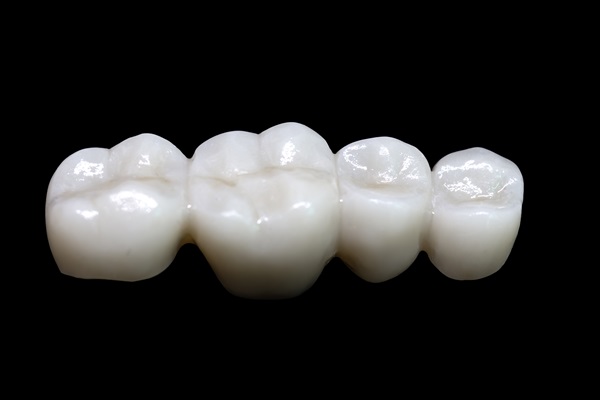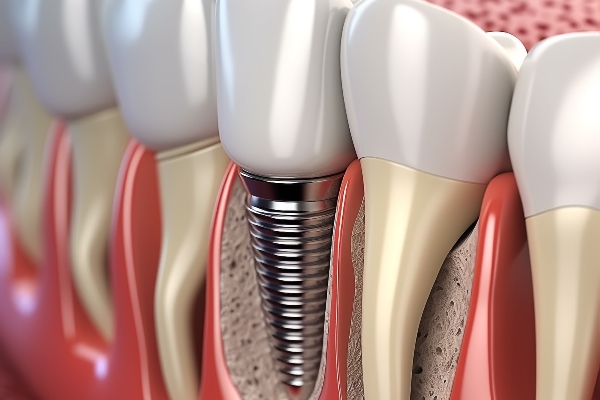4 Things to Know About Dental Implants

If someone is missing teeth, one of the options for replacing them is dental implants. According to the CDC, one in five adults over 65 have severe tooth loss. Tooth loss may occur due to untreated cavities, gingivitis, and oral trauma. There are numerous benefits to getting implants, although it is not necessarily an option for everyone. Getting implants is a big commitment, so it is important to understand more about them.
What to know about dental implants
The loss of your teeth can result in defective speech, rapid bone loss, uncomfortable chewing, and lost confidence. There are various procedures to replace missing teeth, including dental implants. Professionals may choose to perform endosteal implants, where the surgeon embeds the implant in the jawbone or subperiosteal implants. Subperiosteal involves affixing the implant on top of the jawbone. Dental implants are a popular choice for a number of reasons.
1. They look and function like real teeth
Unlike other replacement methods, implants, which are titanium rods, are inserted into the jawbone. This provides a solid and stable base to support the artificial teeth. This results in the ability to speak and chew normally, and the individual does not have to avoid any type of food.
Crowns are used as replacement teeth, and they attach to the implants. The dentist chooses a shade that matches the natural teeth, so they look real. This, along with not having gaps in the mouth, increases the patient's confidence.
To maintain your jaw's strength, you have to apply consistent pressure. Force stimulates the bone and prevents the body from reabsorbing the bone. A patient with natural teeth creates enough stimulus through chewing. While other methods may preserve a patient's smile, they do not stimulate the bone. Implant rods serve as replacements for natural roots.
2. Not everyone is a candidate
Dental implants are not a viable option for all patients. First, the candidate must have sufficient density of the jawbone to support the implants. For some, a bone graft may be the answer, but this adds another step to the process.
Second, a person must have good oral hygiene and not have any dental or gum issues like decay or periodontal disease. If someone does have a cavity or early stages of gum disease, this issue needs to be taken care of first. Patients who grind their teeth heavily may need to control their habits before obtaining implants.
Third, a good candidate is someone who is in good general health. If a patient has a medical condition that interferes with healing, implants are not a good option. Professionals may not offer implants to patients with metabolic disease, soft tissue disease, or an acute illness. Patients undergoing chemotherapy, radiation therapy, or bisphosphonate drug treatment may have an increased risk of complications.
3. They last a long time
Implants are designed for the long haul. Titanium is a biocompatible material that does not corrode. They are easy to take care of, as you brush and floss them like regular teeth. With proper care, they can last a lifetime. The crowns can suffer wear and tear, however. Many crowns last about 10 to 15 years before requiring repair or replacement. Since you chew more with the back of your mouth, the back teeth may wear down faster than the front teeth.
4. It is a time-consuming process
Although there are numerous advantages of dental implants, it is important to know that the procedure is not quick. It takes numerous visits, and the average completion time is between eight and 12 months.
The first step is to insert the rods into the jawbone. The treatment area then needs to heal, and the bone needs to grow around the implants, which can take months. Next, a healing cap is placed on top of the implant, and this takes up to 14 days to heal. Then, abutments are screwed into the implants, and temporary crowns are placed. After about four to six weeks, the permanent crowns are attached.
Healing time can vary from patient to patient. If a tooth extraction or bone graft is required, this lengthens the procedure even more.
Conclusion
Dental implants are a good option for many people who are missing teeth. They are stable, natural-looking, and long-lasting. Implants consist of titanium rods inserted into the jawbone with tooth-colored crowns. However, it is not an easy and quick procedure, so patients should be aware of that before choosing this method.
Request an appointment here: https://www.thegalleryofsmiles.com or call Midtown Dental - The Gallery of Smiles at (713) 979-4127 for an appointment in our Houston office.
Check out what others are saying about our dental services on Yelp: Dental Implants in Houston, TX.
Recent Posts
A dental implant is the gold standard of dental restorations. It provides stability and natural-looking results. Understanding the benefits of implants can motivate you to see your general dentist about it. Here are the different oral health advantages of a dental implant.The titanium rod acts as the dental root. It merges with the jawbone and…
The introduction of dental implants has provided a solution to tooth replacement that goes beyond mere function to address the core of personal well-being. Loss of teeth has an impact on a lot more than just dental health — it impacts chewing, talking ability, and confidence. This is where dental implants come into play as…
Dental implants are among the most popular missing teeth replacement options available in general dentistry. They are the only oral prosthetics that replace missing teeth and their roots, which means they preserve bone tissues in the jaw. Bone tissue loss typically takes place when teeth fall out due to the bone tissues not getting the…
For those who severely damage or lose a permanent tooth, dental implants can restore the appearance and function of a healthy smile. This option produces a durable and more natural-looking replacement than other alternatives, such as crowns or bridges. While the treatment process can be lengthy, most patients find they can return to a normal…










